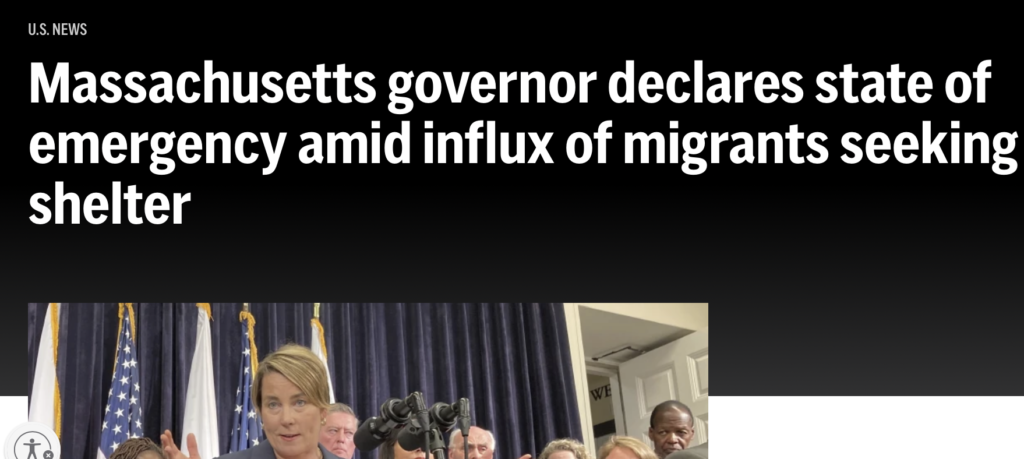The Influx of Migrants in Massachusetts: From Emergency to Development Opportunity

Source: AP
On August 8, 2023, Massachusetts Governor Maura Healey declared a state of emergency to address Massachusetts’ “overburdened shelter system.” With the increasing influx of migrants over time, the crisis has surpassed the state’s capacity. Hence, the emergency declaration could facilitate federal support for what the Governor considers a national issue.
This migration crisis could be transformed into an opportunity to promote social well-being, not only for the migrants – most of whom are victims of humanitarian emergencies, like the Venezuelans – but also for the state and, in general, the American economy, through policies that promote the economic integration of migrants. A key measure that could favor this integration is work permits.
Migration crises like the one faced by Massachusetts could be addressed from a humanitarian perspective to provide essential goods and services – such as housing – to vulnerable people based on temporary reliefs. This approach, although necessary, is not only incomplete but could also hinder the ability of migrants and refugees to contribute to the productive development of host communities.
As Professor Alexander Betts (University of Oxford) explains in his inspiring book, under adequate public policies, countries can facilitate the socioeconomic integration of refugees, catalyzing their productive capacities. Therefore, according to Professor Ricardo Hausmann of the Harvard Kennedy School, governments can encourage human mobility to bring new productive know-how that can be disseminated in the host economy, favoring economic complexity.
Each migrant who has arrived in Massachusetts brings productive capabilities built over years of experience. As Governor Healey said, certified welders and truck drivers are waiting for an opportunity to work. What these “hard-working newcomers” need, then, is not only shelter; they need a regular status to work and apply their productive know-how to foster the American economy.
As Felipe Muñoz (Inter-American Development Bank) asserted, the regular status of migrants and refugees depends on work permits. These permits can help transform vulnerable migrants and refugees into active agents for social transformation. They have only two suboptimal solutions without permits: entering the informal economy or depending on humanitarian aid. Neither of these options respects human dignity.
To avoid the negative consequences of informal human mobility, the Biden administration promoted the Los Angeles Declaration during the IX Summit of the Americas – a milestone political commitment towards promoting safe, orderly, and regular human mobility by providing formal pathways for migrants and refugees to integrate into the economy. One of those pathways is, precisely, work permits.
A common concern regarding work permits is that foreign workers will endanger national employment. However, under proper integration policies, foreign and domestic workers are not rivals but complementary actors.
Some successful examples exist. For instance, the Colombian Government has implemented several regularization processes, including a 2021 Decree that granted a temporary statute to protect the Venezuelan people, providing them with legal status to work. As preliminary evidence suggests, this policy has not only improved the quality of life for migrants and refugees but has also contributed to promoting development in Colombia.
The emergency declared by Governor Maura Healey can be an opportunity to promote sustainable and inclusive growth through federal policies that facilitate work permits, providing a legal status that will empower migrants and refugees to contribute to the American economy. They have traveled long distances – and undertaken dangerous journeys, such as crossing the Darien Gap – for an opportunity to improve their quality of life. Now, they need legal status to facilitate their socioeconomic integration into the US.